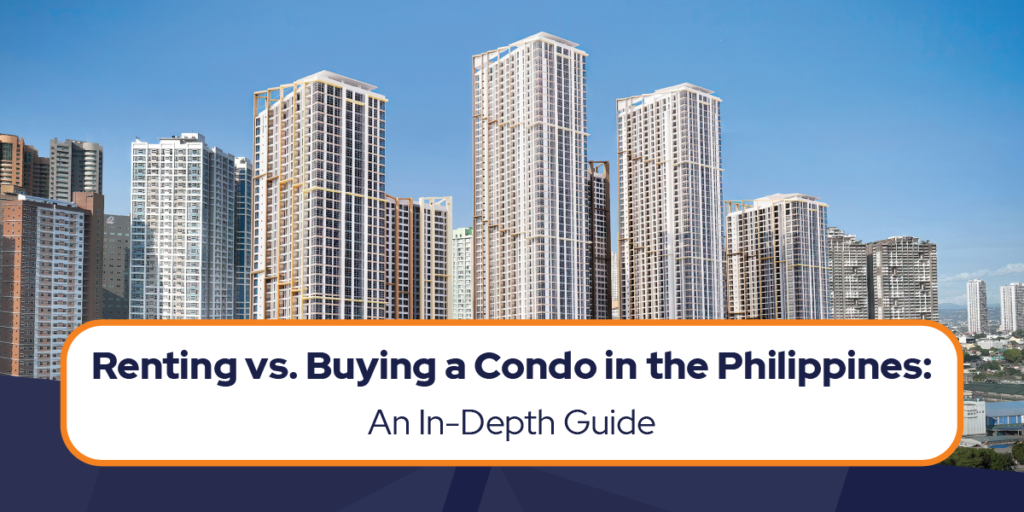As a young professional, building long-term wealth is likely one of your top financial goals. From an early age, we’re taught that saving money and investing in stocks and bonds are essential steps toward achieving lasting financial stability.
While stocks and savings accounts offer traditional investment paths, real estate provides a unique combination of stability, appreciation, and lifestyle benefits. Owning property offers a direct route to passive income and wealth generation.
A property can also increase in value over time and offer financial security, especially in a volatile economy. With increasing luxury condos and high-rise developments designed for modern professionals, now is the perfect time to explore your real estate investment options.
Investing in real estate helps you secure a space that complements your lifestyle while building long-term wealth. Here are some of the best options for you.
Best Real Estate Investment Options for Young Professionals
Your first real estate investment should match your lifestyle and financial goals. The right choice can elevate your everyday life while building long-term wealth.
1. High-rise residential developments
High-rise condos offer the perfect mix of convenience, style, and long-term value. Living in a high-rise keeps you close to everything that matters—your workplace, nightlife, and the city’s best amenities—so you can enjoy a vibrant lifestyle while staying seamlessly connected.
Beyond lifestyle perks, high-rise condos are a wise investment. Buying during the pre-selling stage often means lower prices and strong appreciation potential. Whether you plan to live in it or rent it out for passive income, you’re securing both a dynamic lifestyle and long-term property value.
What to look for:
Not all high-rises are the same. Prioritize developments that offer:
- Sustainable design – Green-certified buildings help lower living costs and increase resale value. LEED-certified homes, for example, use 20-30% less energy and sell for about 16% more than conventional properties.
- Smart home technology – Features like automated lighting, climate control, and security systems enhance convenience and efficiency. Smart thermostats alone can reduce utility costs by 30%, and 82% of renters prefer homes with built-in smart tech, making your property even more appealing to future tenants.
If you’re looking to diversify, land is also a smart option. For example, a lot for sale in Cavite benefits from the area’s rapid growth and ongoing infrastructure projects, making it a promising asset—whether you plan to develop it later or hold it for future gains.
2. Rental properties for passive income
Owning a rental property is a great way to build wealth while generating a steady passive income. In high-demand areas, well-chosen properties can ensure strong occupancy rates and reliable returns.
What to look for:
Your rental property should work for you—it should be easy to manage, always in demand, and deliver steady returns.
- Prime locations – Properties near business districts, universities, or vibrant city hubs attract a steady stream of tenants and command higher rental rates.
- Easy upkeep and management – Choose a low-maintenance unit to keep things simple. If you want a hands-off approach, hiring a property manager can help you maximize returns without the day-to-day hassle.
Best rental property options:
- Studio apartments – A go-to choice for first-time investors, studios are affordable, easy to manage, and always in demand. Young professionals and students are drawn to their prime locations and lower rental costs.
- Fully furnished condos – To maximize returns, consider furnishing your unit for short-term rentals. Business travelers and digital nomads prefer stylish, move-in-ready spaces, making Airbnb and similar platforms a highly profitable option.
3. Mixed-use developments
Imagine living in a place where work, dining, and entertainment are just an elevator ride away. Mixed-use developments offer a seamless “live, work, play” lifestyle, attracting a wide range of tenants and driving strong property values.
Investment perks:
- Built-in convenience – Enjoy easy access to restaurants, gyms, and co-working spaces, all just steps from your door.
- Multiple income streams – Maximize returns by leasing out both residential and commercial spaces within the development.
4. Luxury condos in prime locations
Living in a condo in Mandaluyong, Makati, or BGC puts you close to work, nightlife, and top conveniences. A luxury condo here isn’t just about comfort—it’s a wise investment with long-term value. Professionals and expatriates are willing to pay a premium for prime locations and high-end amenities, making rentals easier to fill and providing a steady income.
Demand for upscale properties is rising, with luxury units making up 11% of Metro Manila’s pre-selling market in 2023. Investing now means securing long-term growth while enjoying a lifestyle of comfort and prestige.
What to look for:
- Walkability – Properties just steps from business hubs, malls, and transit stations offer unbeatable convenience, a top priority for busy tenants.
- High-end amenities – Features like infinity pools, co-working lounges, and smart-home technology create a luxurious, five-star living experience that attracts premium renters.
5. Real Estate Investment Trusts (REITs)
Want to invest in real estate without the hassle? REITs let you earn from malls, offices, and hotels—no upkeep or tenant management is needed. It’s a low-risk way to grow your wealth while staying flexible.
Why Choose REITs?
- Lower upfront cost—Unlike buying property, REITs require less capital, making them a more accessible option for beginners.
- Hassle-free earnings – Earn a share of rental profits without the stress of managing units or dealing with tenants.
- Diversification – Spread your investments across different properties to balance risk and strengthen your portfolio.
Build Wealth and Live Well
Everyone dreams of building wealth, but the path to financial freedom looks different for each person. Some envision owning a high-rise condo with skyline views, while others prefer a hands-off investment that works for them.
Real estate in the Philippines offers the chance to grow your wealth, upgrade your lifestyle, and secure your future. Whether you’re looking for a city home or a wise investment with steady returns, there’s an opportunity waiting for you.
The only question is: Where will you put down roots? Let’s find your best move. Contact us today and start turning your real estate goals into reality.









